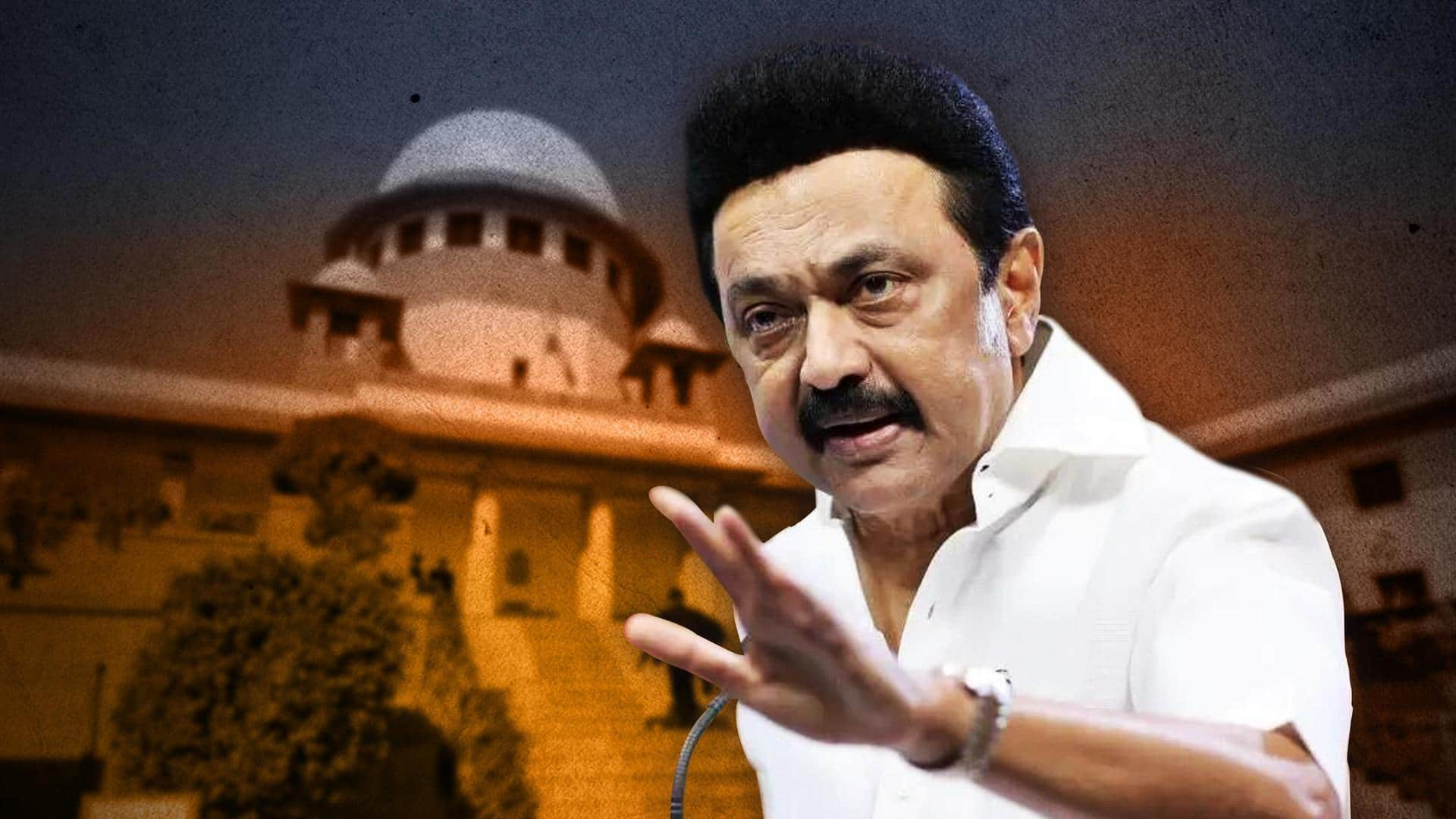
Citizenship Amendment Act arbitrary, against Tamil race: DMK tells SC
What's the story
The Dravida Munnetra Kazhagam (DMK) told the Supreme Court on Tuesday that the Citizenship (Amendment) Act (CAA), 2019, is arbitrary for recognizing religious minorities from three countries only while excluding Muslims and completely ignoring Sri Lankan Tamils. In an affidavit, the party dubbed the Act "against the Tamil race" for ignoring the predicament of Tamil refugees in Tamil Nadu.
Context
Why does this story matter?
The development comes nearly three months after the Ministry of Home Affairs (MHA)—led by Bharatiya Janata Party (BJP) leader and Home Minister Amit Shah—sought an extension fifth time to frame the rules. In 2020, the home ministry had said the process was getting delayed due to the COVID-19 pandemic and that it would be undertaken after the vaccination drive begins.
Representation
What does affidavit say?
"The Act is arbitrary as it relates to only three countries-Pakistan, Afghanistan and Bangladesh-and is confined to only six religions-Hindu, Sikh, Buddhist, Jain, Parsi, and Christian communities-and expressly excludes Muslims," the DMK said in an affidavit. "While considering religious minorities, it keeps Tamils of Indian origin, who are presently staying in India as refugees after fleeing from Sri Lanka due to persecution,"
Details
Sinhalese see Tamils as invaders, DMK claims in affidavit
The party claimed in the affidavit that the Sinhalese population of Sri Lanka which is a Buddhist majority has historically considered the Tamils as invaders, infringing on their territory. It said Clause 9 of the Sri Lankan Constitution, provides a clear direction for the state and rulers to protect the Buddhist population and foster the Buddha Sasana.
Information
'Tamils too faced religious prosecution'
Tamils faced religious persecution as they were predominantly Hindu, they have faced rampant persecution due to their minority status since Ceylon's independence from British". Pointing to the various deals between the government of India and Sri Lanka for rehabilitation and repatriation of the Tamil population, it said that as on January 4, 2010, there were a total of over 4.6 lakh these registered expatriates
Pleas
Petitioners who had challenged CAA
The CAA matter is presently on SC after some political parties and non-governmental organizations (NGOs) challenged the act. The petitioners included the Kerala-based political party Indian Union Muslim League (IUML), Trinamool Congress MP Mahua Moitra, Congress leader and former Union minister Jairam Ramesh, All India Majlis-e-Ittehadul Muslimeen (AIMIM), NGOs Rihai Manch and Citizens Against Hate, Assam Advocates Association, and law students among others.
Proceedings
Some important developments in the court
As per India Today, a bench chaired by former Chief Justice SA Bobde issued a notice in the petitions in January 2020. Notably, the central government said in its affidavit before the top court that the CAA does not violate any existing rights. It was also maintained that the CAA does not attempt to harm any Indian citizen's legal, democratic, or secular rights.
About
What does CAA entail?
CAA provides members of six minority religious communities—Hindu, Sikh, Buddhist, Jain, Parsi, and Christian—from Pakistan, Afghanistan, and Bangladesh who visited India before December 31, 2014, eligible for Indian citizenship. The MHA previously said that the citizenship process will be completed fully online. The statute exempts members of these six categories from punishment under the Foreigners Act of 1946 and the Passport Act of 1920.
History
The proposal triggers protests in 2019-20
The CAA instigated violent protests and riots across India between December 2019 and March 2020, killing 83 people in Assam, Delhi, Karnataka, Meghalaya, and Uttar Pradesh. Residents argued that permitting foreign tourists would imperil the sensitive demographics of border communities. In February 2020, anti-CAA protests shook Delhi as a days-long communal conflict killed over 50 people and wounded hundreds more.